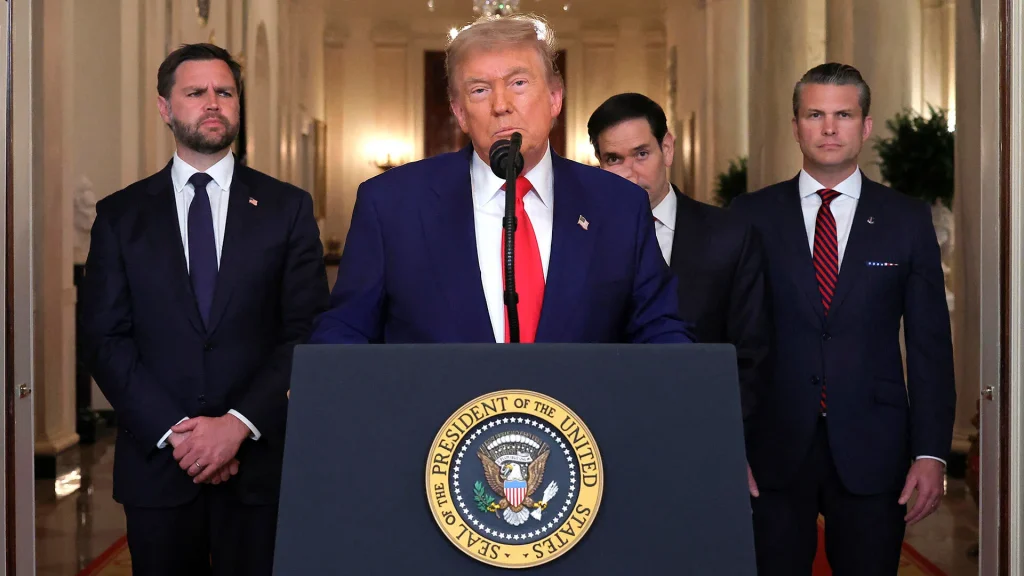Trump enters conflict as US bombs key nuclear sites in Iran

Donald Trump has declared that US forces bombed three Iranian nuclear sites, formally entering the campaign to dismantle Tehran’s nuclear programme, as reported by The Guardian on June 22nd.
The move aims to weaken Iran’s military capabilities amid growing threats of retaliation that risk igniting wider conflict across the Middle East.
“Our objective was the destruction of Iran’s nuclear enrichment capacity and a stop to the nuclear threat posed by the world’s number one state sponsor of terror,” said Trump from the White House. “Tonight, I can report to the world that the strikes were a spectacular military success. Iran’s key nuclear enrichment facilities have been completely and totally obliterated.”
The US hit uranium enrichment sites at Fordow, Natanz and Isfahan. Trump warned Iran not to retaliate against US assets in the region, vowing to carry out even deadlier strikes if necessary.
Iran responded with roughly 20 ballistic missiles aimed at Israel, injuring 16 individuals and setting off air raid sirens nationwide.
Trump said: “There will be either peace or there will be tragedy for Iran far greater than we have witnessed over the last eight days.” He added: “Remember, there are many targets left. Tonight’s was the most difficult of them all by far, and perhaps the most lethal. But if peace does not come quickly, we will go after those other targets with precision, speed and skill.”
Israel’s Prime Minister Benjamin Netanyahu praised the US intervention. “Congratulations, President Trump, your bold decision to target Iran’s nuclear facilities with the awesome and righteous might of the United States will change history,” he said.
Trump described the operation as a coordinated effort with Netanyahu. The US president said they “worked as a team like perhaps no team has ever worked before.”
Trump had earlier vowed to give Iran “two weeks” to respond, yet ordered the strike just two days later, the BBC reported on June 22nd. Whether this shift reflected collapsed back-channel negotiations or a tactical bluff remains unclear. Steve Witkoff, Trump’s appointed peacemaker, played a role in those efforts, which appear to have failed.
Iranian foreign minister Abbas Araghchi denounced the strikes as “outrageous.” He also said they “will have everlasting consequences”. Tehran vowed to defend its territory and called for an emergency UN Security Council meeting. Iran’s atomic agency pledged to continue its nuclear work. The International Atomic Energy Agency reported that there was no radiation leak, after the bombings.
The President insisted the strike opened the door to peace, although critics warned that Iran, already unwilling to negotiate under Israeli fire, may respond even more defiantly under direct American bombardment. Meanwhile, Araghchi has said the door to diplomacy is closed after the US strikes, The Times of Israel via AP reported on June 22nd.
Critics argue that Trump, who often railed against foreign wars, now faces the risk of deeper entanglement. If the attack is only a first step, pressure to escalate will mount, and the president, once branding himself as a peacemaker, may soon battle against political blowback from all sides.
Trump ruled out sending ground forces. Trump authorised the attack after direct consultations with Netanyahu, Despite objections from US Vice President JD Vance.
The Guardian, BBC, The Times of Israel via AP
Want to chase the pulse of North Africa?
Subscribe to receive our FREE weekly PDF magazine












